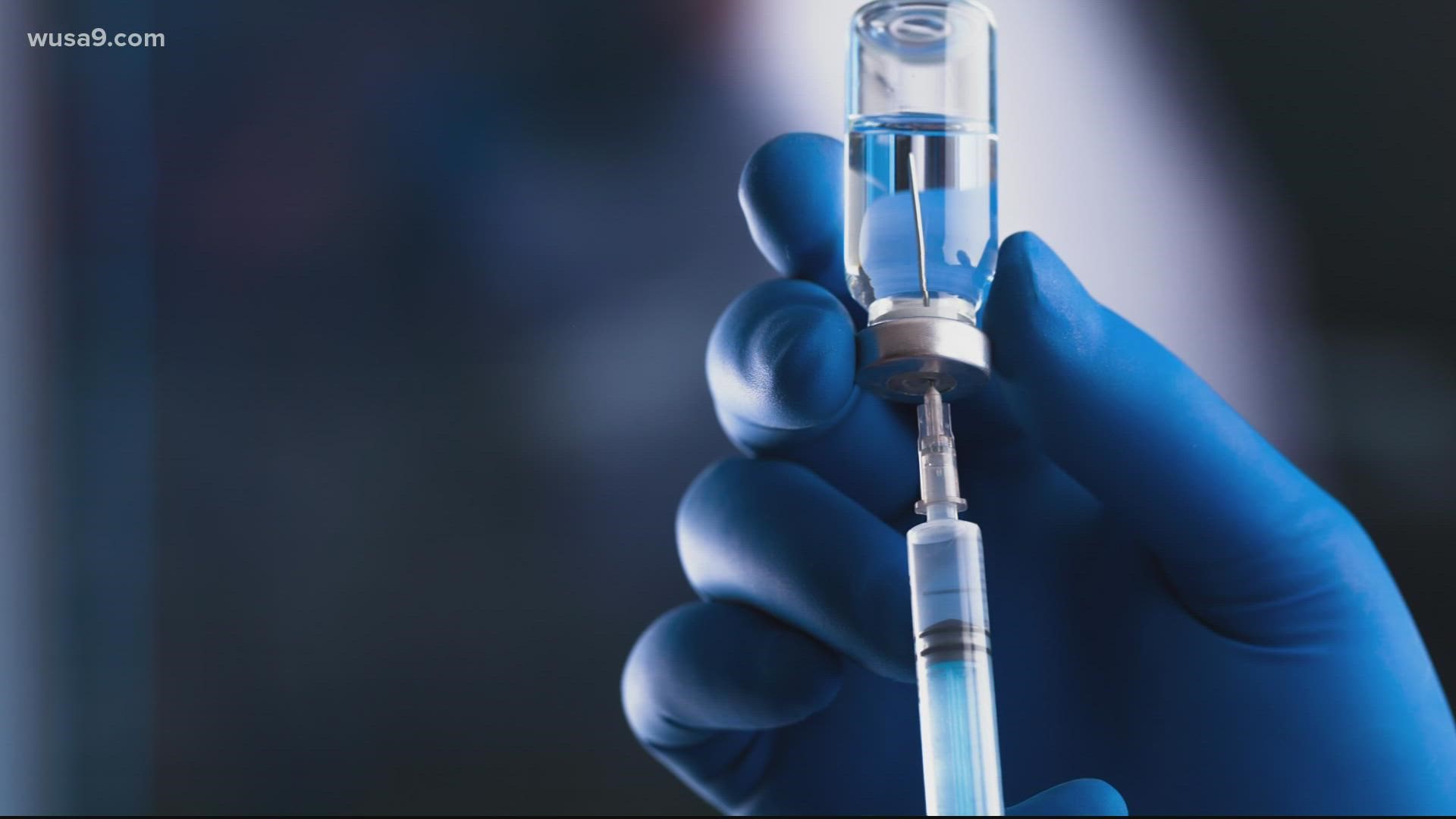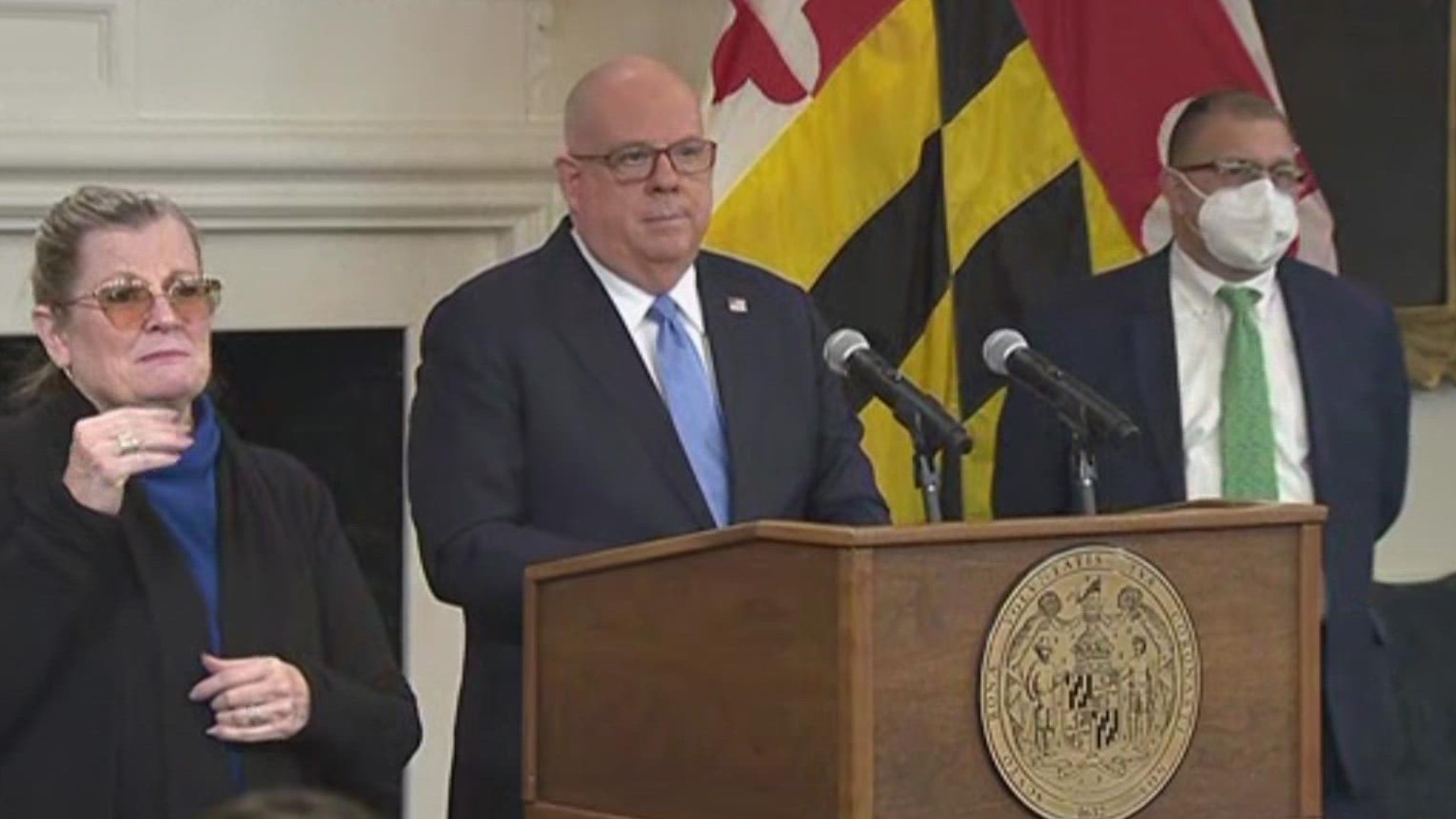WASHINGTON — Although a large number of DMV residents decided at some point in the past year to roll up their sleeves for a COVID vaccine, enthusiasm seems to have seriously waned when it comes to signing up for a booster.
More than 70% of the population has received two doses of a COVID-19 vaccine, or at least one dose of a Johnson and Johnson shot, across D.C., Virginia and Maryland according to CDC data. D.C. has the lowest rate, at just over 71% and Maryland is the highest, at just under 80%. Virginia sits in the middle, just past 75%.
Despite these numbers, frequently celebrated as successes by officials, less than 50% of the population in all three has a booster dose.
D.C. is reporting that only 33% of residents are boosted.
Maryland, at 47.1%, has even introduced a lottery to incentivize people to continue their vaccine regimen. The lottery will award $1 million to one lucky resident who’s gotten their booster, $500,000 to another and $50,000 to 10 more people.
So why have so many people who did commit to the first couple of COVID vaccine doses slacking at getting their booster?
Dr. William Moss, a professor in the departments of epidemiology, international health and molecular microbiology and immunology at the Johns Hopkins Bloomberg School of Public Health, is also the executive director of the International Vaccine Access Center. He says that, in his observations, the reasons for a lack of enthusiasm toward getting the booster shot are twofold. First are the confusing recommendations from public officials surrounding when, why and who should get a booster, as knowledge changed with the introduction of the omicron variant.
“I think there was some confusion in the public as a consequence of that about who really should be getting booster doses,” he said, acknowledging that the focus was originally on immunocompromised populations.
Another reason, he added, is that as vaccinated people got infected in the new wave, some may have lost sight of the importance of getting vaccinated altogether.
However, Dr. Moss urged the public to remember the real point of vaccines.
“[They’ve] still proven to be highly protective against severe disease, hospitalization and death, which is really the most important outcome," Moss said.
Moss also noted the confusion that’s swirled among those who were previously, fully vaccinated prior to the omicron wave, but ended up infected with COVID-19 sometime later. Regardless of whether you’ve recently been infected, experts agree it is still advisable to get a booster. The true debate hinges on when the best time might be. Moss acknowledged that some public health experts have said anything in the range of weeks to months.
The CDC advises anyone older than 12 to get their booster sometime after their initial shot or series. People who received the Pfizer-BioNTech or Moderna COVID-19 vaccine are currently advised to get their booster at least five months after the primary series. People who got a Johnson & Johnson vaccine should get a booster shot at least two months after getting their first shot.
However, getting an infection does complicate the matter. Dr. Moss said that the hesitancy to recommend getting a booster too quickly comes from the concern that it could produce a stronger immune response when more adequately spaced out.
Dr. Donald Alcendor, associate professor at Meharry Medical College and associate adjunct professor at Vanderbilt University Medical Center, explained to WUSA9’s Verify team that you don't want your immune system to be compromised before getting the booster.
“You want to have a good response to that vaccine, and a good response means an immune system that is firing on all cylinders," he said. "And the idea that you're sick already, your immune system may be under duress at that point.”
The CDC also recommends waiting to get a booster until symptoms resolve and you’re done with isolation.
Regardless of the previous infection, Moss advised the public to seriously consider still getting a booster, even as cases lower over time. Although the CDC still considers the initial series of shots to be a sufficient definition of fully vaccinated, another booster is needed for optimum protection.
As more variants pop up over time - as Moss assures that they will - it can’t hurt to be as protected as possible. And if you aren’t, assess your risk accordingly.
“I think right now, the question is either you get boosted or you get infected,” he said, specifying that the true wild card will be if future variants evade previous immunity. If so, “We'll have kind of a more prolonged period of the pandemic at lower levels than what we just went through . . .That's probably what's happened over the past two months and will continue to happen at a lower level going forward.”


